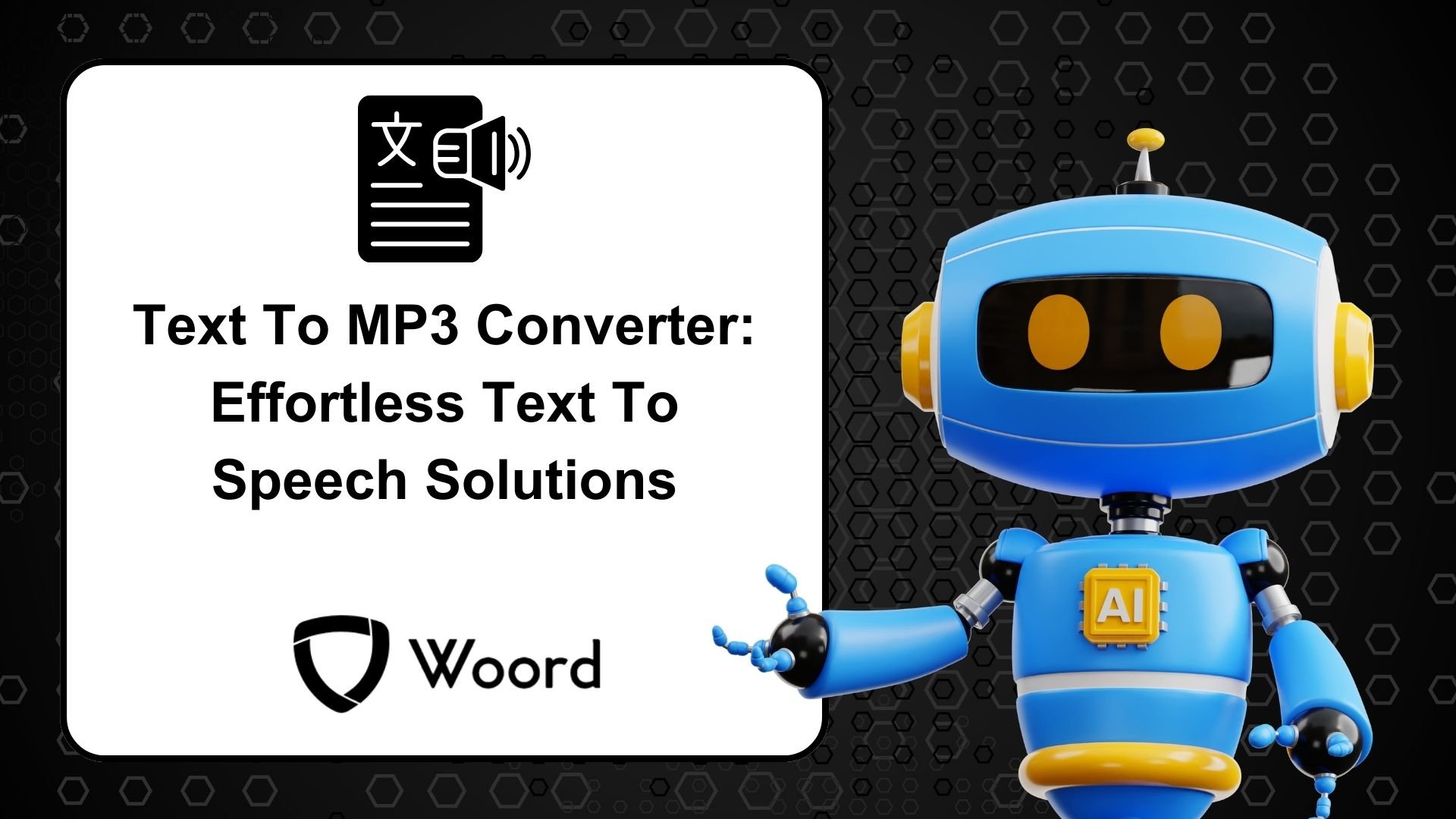Text To MP3 Converter: Effortless Text To Speech Solutions

A text to MP3 converter is essential for improving accessibility for those with vision impairments. These cutting-edge technologies make it easier to convert written text—such as books, articles, and instructional materials—into MP3 audio files. These converters make sure that content is given in a way that is easily understood by auditory means by utilizing cutting-edge text-to-speech technology.
The capacity of a text to MP3 converter to enable people with vision problems to access a variety of content is one of its main benefits. These converters enable visually impaired people to access a wide range of previously inaccessible items, including academic journals, literary classics, web articles, and educational resources. Their lives are profoundly enhanced as a result of this, which expands their educational and cultural horizons.
Catering to Diverse Learning Styles and Preferences
Individuals possess diverse learning styles and preferences, with some being auditory learners who absorb information more effectively through listening. Traditional text-based content may not adequately cater to these individuals, leading to suboptimal learning outcomes. Recognizing and accommodating these diverse learning needs is essential for promoting inclusive education and fostering equitable learning environments.
Audio content offers a compelling solution for addressing the limitations of traditional text-based materials. By presenting information in an auditory format, audio content caters to auditory learners and individuals with reading difficulties, thereby enhancing their comprehension and retention of information. Additionally, audio formats promote multimodal learning, allowing individuals to reinforce their understanding through auditory cues while engaging with visual materials simultaneously.
How a Text to MP3 Converter Provides an Alternative Mode of Content Consumption
A Text to MP3 converter serves as a bridge between traditional text-based content and audio formats, offering an alternative mode of content consumption that aligns with diverse learning preferences. These converters enable individuals to convert written text into MP3 audio files, allowing them to listen to content instead of reading it. By offering flexibility in content delivery, they accommodate the needs of auditory learners and individuals with visual impairments, thereby promoting inclusive and accessible education and information dissemination.
Get Woord
Woord offers over 100 voices in 34 different languages. Regional translations are available for a number of languages, including Brazilian Portuguese, Canadian French, and others. Any type of information can be altered, including textual materials such as novels, blogs, research papers, news stories, and other literary works. A continuous flow of music enhances the experience and captivates the audience.
Their state-of-the-art artificial intelligence (AI) technology generates synthetic sounds that closely mimic spoken language. For MP3 downloads and audio hosting, use an HTML embed audio player. This suggests that audio files can be used in for-profit online courses and YouTube films.
A Woord user can monitor any unused audios month-to-month if their subscription is active. We call this function accumulated audio. If, for example, a user with a Starter Subscription only listens to five of the ten audios that are sent each month, the five that are not utilized will be carried over to the next month along with the ten audios that are issued. This suggests that the consumer will have access to fifteen audios in total during the second month. This feature allows users to store any undesirable music for later use, giving them greater flexibility and convenience and enabling them to get the most out of their membership.


